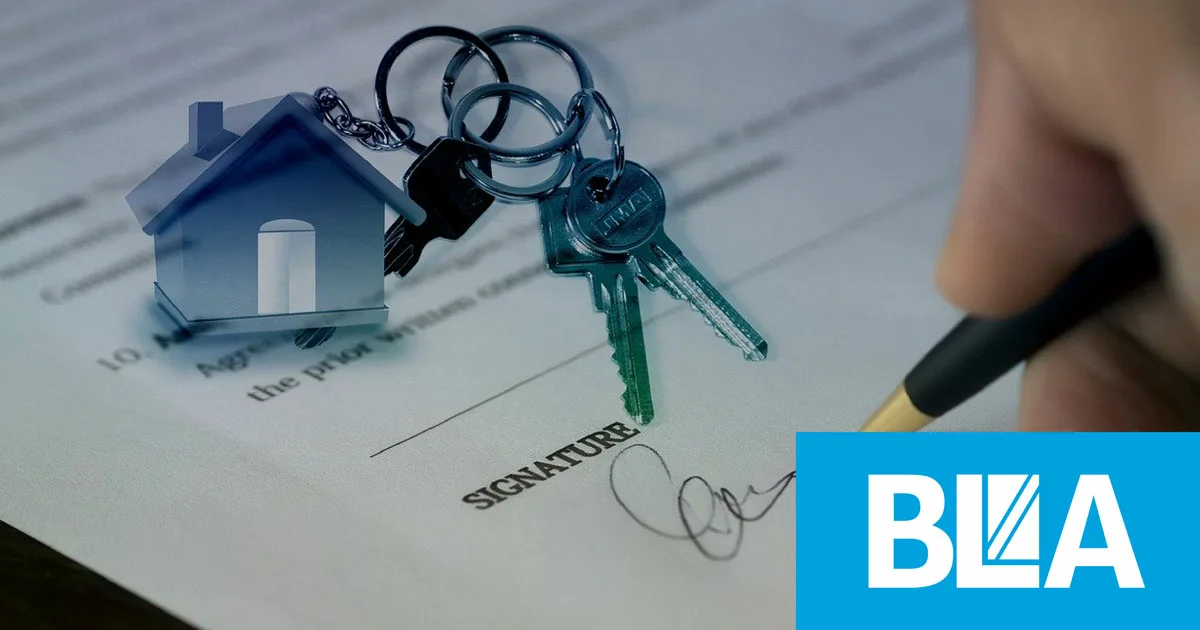How to Increase rent for commercial tenant
British Landlords Association know the importance of clarity and knowledge regarding commercial leases and the rights of both landlords and tenants.
In this comprehensive guide, we delve into the topic of commercial landlord rent increases, shedding light on the legal framework, considerations, and implications for both parties involved.
Legal Basis for Rent Increases
Commercial lease agreements typically outline the conditions under which a landlord can increase rent. These conditions often include:
Lease Terms: The lease agreement stipulates the terms and conditions governing rent increases, including frequency, notice period, and percentage increases.
Market Conditions: Landlords may seek to align rental rates with prevailing market conditions to ensure competitiveness and fair returns on their investment.
Property Improvements: Landlords may justify rent increases based on significant improvements or upgrades to the property that enhance its value or attractiveness to tenants.
Factors Influencing Rental Increases for Commercial Property
Several factors can influence a commercial landlord’s decision to increase rent:
Market Trends: Fluctuations in supply and demand within the local commercial real estate market can impact rental rates. Landlords may adjust rents accordingly to reflect changing market dynamics.
Property Expenses: Increases in property taxes, maintenance costs, or insurance premiums may prompt landlords to pass on some of these expenses to tenants through rent increases.
Property Value: Appreciation in the property’s value over time can justify landlords for raising rents, especially if the property’s rental income fails to keep pace with its increased value.
Tenant Improvements: If tenants request or require customised improvements to the property, landlords may negotiate rent increases to offset the costs of such enhancements.
Legal Considerations for Landlords
Commercial landlords must adhere to certain legal requirements and considerations when implementing rent increases:
Notice Period: Landlords must provide tenants with adequate notice of any proposed rent increases specified in the lease agreement or local tenancy laws.
Fairness and Equity: Rent increases must be reasonable and justified, considering market norms, property conditions, and the impact on tenants’ businesses.
Anti-Discrimination Laws: Landlords must ensure that rent increases do not discriminate against tenants based on protected characteristics such as race, gender, or disability.
Dispute Resolution: In the event of disagreements or disputes regarding rent increases, landlords and tenants may need mediation, arbitration, or legal proceedings to resolve the matter effectively.
Tenant Rights and Protections
Tenants have certain rights and protections regarding rent increases, including:
Notice Requirements: Landlords must provide tenants sufficient notice before implementing rent increases, allowing them time to evaluate the proposed changes and respond accordingly.
Negotiation: Tenants may be able to negotiate rent increases with their landlords, particularly if they can demonstrate adverse financial impacts or market inconsistencies.
Legal Remedies: Tenants who believe that rent increases are unjustified or unlawful may have recourse to legal remedies such as lease termination, rent abatement, or seeking injunctions from the court.
Strategies for Mitigating Rent Increases
- Lease Negotiation
When entering a commercial lease agreement, tenants can negotiate terms limiting the landlord’s ability to increase rent excessively. Key negotiation points may include:
Fixed Increases: Negotiating for fixed rent increases over the lease term can provide tenants with predictability and stability, mitigating the risk of unexpected hikes.
Capped Increases: Setting a cap on the maximum percentage by which rent can increase annually or throughout the lease term can protect tenants from excessive rises.
Renegotiation Clause: Including a clause that allows for rent renegotiation under certain conditions, such as changes in market conditions or tenant performance, can provide tenants with flexibility and recourse.
- Long-Term Lease Agreements
Signing a long-term lease agreement with extended renewal options can lock in current rental rates for an extended period, shielding tenants from short-term market fluctuations and rent increases.
- Lease Audit and Review
Regularly auditing lease agreements and consulting with legal or real estate professionals can help tenants identify discrepancies, inconsistencies, or unfavourable clauses related to rent increases.
By staying informed and proactive, tenants can effectively challenge unjustified rent hikes and negotiate favourable terms.
- Market Research and Benchmarking
Conducting thorough market research and benchmarking can empower tenants to assess the reasonableness of proposed rent increases regarding prevailing market rates and conditions.
With relevant data and insights, tenants can negotiate from a position of knowledge and strength.
Rent Increase Commercial property Conclusion
In conclusion, while commercial landlord rent increases are a common aspect of lease agreements, tenants have various strategies to mitigate their impact and protect their interests.
By employing proactive negotiation tactics, signing long-term lease agreements, conducting lease audits, and conducting thorough market research, tenants can navigate rent increases effectively and ensure favourable outcomes for their businesses.
Rent Increase Process Graph
Check Rent Increase Clause
If Clause Exists:
Follow Notice Requirements
Notify Tenant of Rent Increase
Document Justification for Increase
Provide Tenant Opportunity to Respond
Negotiation:
Discuss Terms with Tenant
Mutually Agreed Terms
Finalize Rent Increase
If Clause Does Not Exist:
Negotiate Lease Amendment
Implement Rent Increase
Monitor Tenant's Response
Address Tenant Concerns
If Agreed Confirm Rent Increase
If Dispute Arises:
Engage in Dispute Resolution
Seek Legal Advice
Resolve Dispute
FAQ
- Can a commercial landlord increase rent at any time?
No, commercial landlords in England cannot increase rent arbitrarily. Rent increases must adhere to the terms specified in the lease agreement and comply with relevant laws and regulations.
- What factors typically justify a rent raise for commercial property?
Common justifications for rent increases include market trends, property improvements, rising expenses (e.g., property taxes, maintenance costs), and enhancements requested by tenants.
- How much notice must a commercial landlord give before increasing rent?
The lease agreement typically specifies the notice period required for rent increases. If not, landlords must comply with statutory notice periods outlined in relevant case law, which often range from one to six months.
- Can tenants dispute a proposed rent increase?
Yes, tenants have the right to dispute rent increases they believe unjustified or unlawful. They may negotiate with the landlord, seek legal advice, or pursue dispute resolution mechanisms such as mediation or arbitration.
- Are there any legal limitations on how much rent can be increased?
While there are no statutory limits on rent increases for commercial properties in England, increases must be reasonable and justifiable.
Tenants may challenge excessive or discriminatory increases through legal channels.
- What options do tenants have if they cannot afford a rent increase?
Tenants facing financial hardship due to rent increases may explore options such as negotiating with the landlord for more favourable terms, seeking rent relief or assistance programs, or considering alternative premises.
- Can landlords increase rent during the term of a lease?
In most cases, landlords can only increase rent during a lease term if the lease agreement contains provisions allowing for rent reviews or adjustments under specific circumstances.
Otherwise, rent can only be increased once the lease expires or is renegotiated.
- Is there a limit to how frequently rent can be increased?
The terms of the lease agreement typically govern the frequency of rent increases. Landlords must adhere to any provisions regarding the timing and frequency of rent reviews outlined in the lease.
- How can landlords ensure compliance with legal requirements when increasing rent?
Landlords can ensure compliance by reviewing lease agreements, consulting legal professionals, and following established procedures for rent increases outlined in relevant legislation, such as providing adequate notice to tenants and documenting the justification for the increase.
- What should tenants do if they receive a notice of rent increase?
Upon receiving a notice of rent increase, tenants should carefully review the terms of the proposed increase, seek legal advice if necessary, and consider their options for negotiation or dispute resolution before responding to the landlord.
List of Useful Resources and Links
- Gov. uk – Renting out a commercial property: The official website of the UK government provides comprehensive information and guidance for landlords on renting out commercial properties, including legal requirements, responsibilities, and procedures for rent increases.
- The Royal Institution of Chartered Surveyors (RICS): RICS offers resources, publications, and professional guidance for landlords and property professionals, including best practices for rent reviews and lease negotiations.
- British Landlords Association (The BLA): The BLA is a membership organisation that provides support, advice, and resources to residential and commercial landlords in the UK, including guidance on rent increases and tenancy management.
- The Law Society – Commercial Property Section: The Law Society’s website offers information and resources on commercial property law, including guidance on rent reviews, lease agreements, and landlord-tenant relationships.
- British Property Federation (BPF): The BPF represents the interests of commercial property owners and investors in the UK, providing research, policy updates, and industry publications relevant to landlords and property managers.
The British Landlords Association is a national landlords association for UK landlords. It is one of the largest landlord associations in the UK. Join us now for £79.95!
Our top read blogs:
Investing in Commercial Property vs Residential Property: The Advantages and Disadvantages
Commercial Property Landlord Association-The Bla
Disclaimer:
This post is for general use only and is not intended to offer legal, tax, or investment advice; it may be out of date, incorrect, or maybe a guest post. You are required to seek legal advice from a solicitor before acting on anything written hereinabove.




